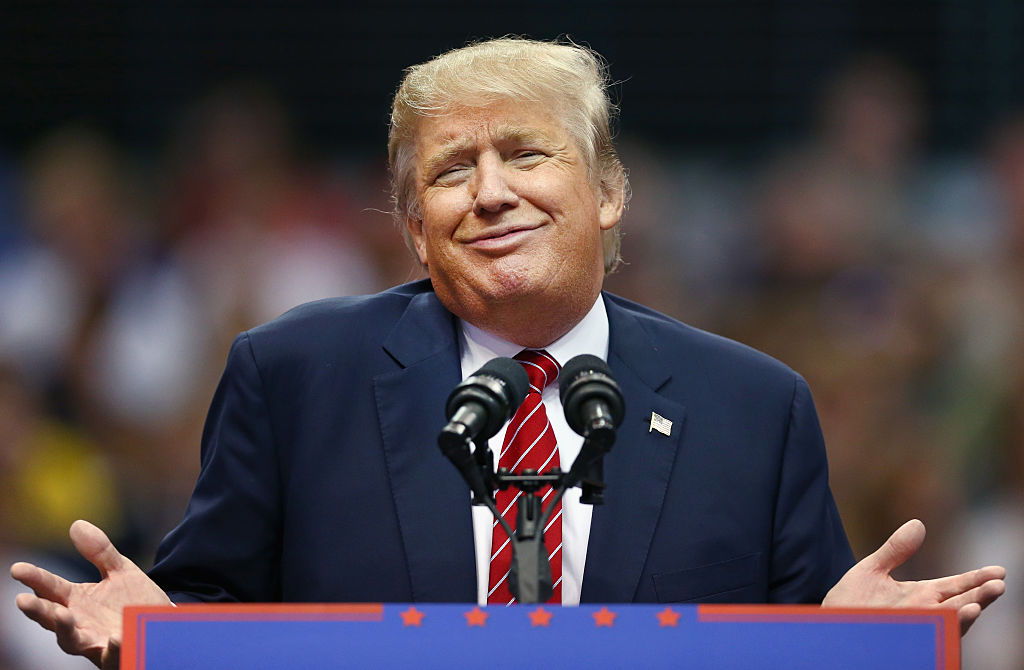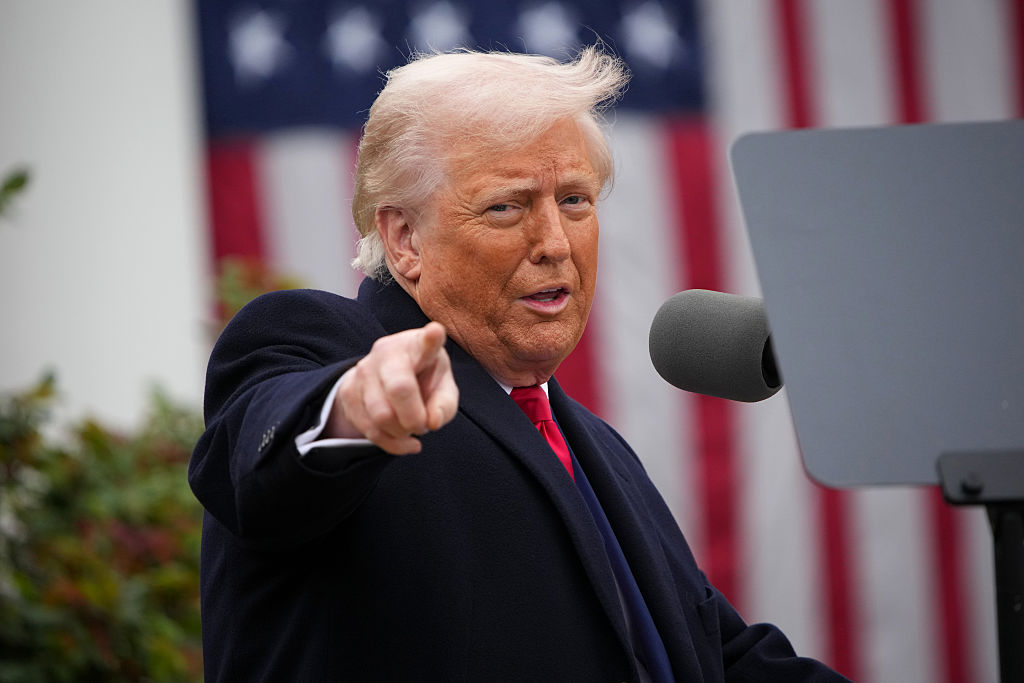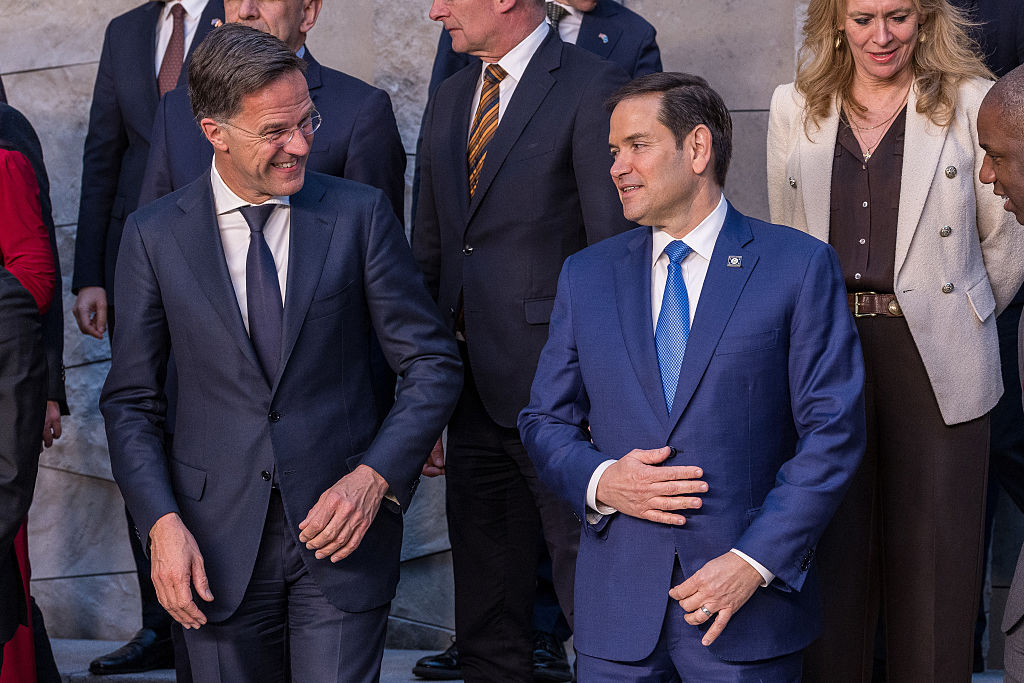As a younger conservative, I tried many times to unwind some college liberal for conflating conservatism with fascism. ‘Conservatives aren’t fascists,’ I’d say in slow, nonthreatening tones as I reached for a rock. ‘Fascists believe in government control of the state and of the economy. We believe in limiting the power of government and in free markets, individual liberty, and the rule of
law.’
On the other side of the equation, our libertarian friends used to basically pretend we could burn the entire enterprise of government to the ground and let a jolly wave of pure, cleansing anarchocapitalist fire set things right.
Of course, neither extreme was correct about mainstream limited government conservatism, but we were largely in the sweet spot. We didn’t want the government getting much bigger, but we didn’t want grannies wrestling rats in the street for scraps of food, either.
Looking back on Republican presidents since Nixon, we see one hallmark in their campaign rhetoric and in their governance: a caution over the size, scope, cost, and power of government. None of them was perfect at restraining its growth (the Department of Homeland Security and George W. Bush’s Medicare expansion stand as two particularly painful examples), but fans of an expanded state would be hard-pressed to see Reagan, George H. W. Bush, or George W. Bush embracing massive expansions in federal power without compelling reasons. After a beat-down in the 1994 elections, even Bill Clinton famously said, ‘The era of big government is over.’
The defining ethos of limited-government conservatism still recognised the legitimate role of government and the powers of the state. The broad conservative consensus was that while the government is generally inefficient, slow, clumsy, dumb, overly intrusive, chock-full of layabouts, and has god-awful design sensibilities, there are areas for which the family, churches, social institutions, the market, and local government simply can’t scale. No one expects Topeka, Kansas, to field a nuclear deterrent or Rhode Island to administer its own postal system. So much for that argument in the era of Trump.
Generations of Republican candidates for House, Senate, governor, and local offices argued that government’s size, power, and impact on everyday Americans was a pernicious danger to the Republic. Donald Trump erased that from the Republican vocabulary in a matter of months. Those in office who still believe government can be too big keep silent when President Statist pushes for a bigger, more intrusive state.
The GOP is now the party of big government, and it’s all Trump’s fault.
Like so many would-be and actual autocrats, Trump believes in an expanded state and putting the power of an expanded federal government to work for his political ends. He’s also been surrounded at various times by a group of remoras that includes Steve Bannon, Michael Anton, Peter Navarro, Wilbur Ross, Larry Kudlow, and Stephen Miller, all of whom seem perfectly delighted to expand government power, as long as they’re using it to carry out their nationalist-populist agenda.
In his first State of the Union speech, Trump called for a massive infrastructure bill, an affordable child care plan, trade restrictions, a border wall, and allowing governors ‘flexibility’ to expand Medicare. If that last sounds familiar, it’s what Obamacare did most effectively: gave states enormous tranches of money to spend like drunken sailors on shore leave.
‘Compassionate conservatives’ sought to turn the power of government to accomplish conservative ends while shrinking its numerous deleterious side effects. The thought that we could use government to aid the truly needy while moving people toward laudable goals like improved education outcomes, homeownership, and community service may not have been libertarian perfection, but it was at least a middle ground in the political space in which we really live, not Randian, not Fabian. The Troll Party of Trump has no hesitation in using the power of government to bring their fantasy economic and social policies to life. Trump has done more to destroy limited-government conservatism than George Soros could have accomplished in a thousand years.
This is where Trump’s rhetorical hypnosis went to work. The message was no longer ‘Conservatives like me will restrain the power and scale of government.’ Now the message was ‘I’m going to expand government to fuck over the people you hate.’ This was the underlying Bannon-Anton-Miller Axis of Assholes’ nationalism in its true form: ‘We’re going to put the all-powerful state to work punishing those who have caused your grievances.’
For all their objections to the ‘administrative state,’ it turns out that Trump’s merry band of arsonists are perfectly happy to use the power of government to punish their enemies and to appease their base. If government is, as Ronald Reagan put it, ‘the enemy of liberty,’ then Trump’s base has turned that idea on its head; now the government is the enemy of whoever the base hates most.
Reagan also spoke to generations of Republicans and conservatives when he said in 1986, ‘The nine most terrifying words in the English language are, ‘I’m from the government and I’m here to help.”’ For the Trump team, the new message is ‘I’m from the government, and I’m here to punish the people you hate.’
From the New York Times bestseller Everything Trump Touches Dies: A Republican Strategist Gets Real About the Worst President Ever by Rick Wilson. Copyright © 2018 by Rick Wilson. Reprinted by permission of Free Press, a Division of Simon & Schuster, Inc.




















